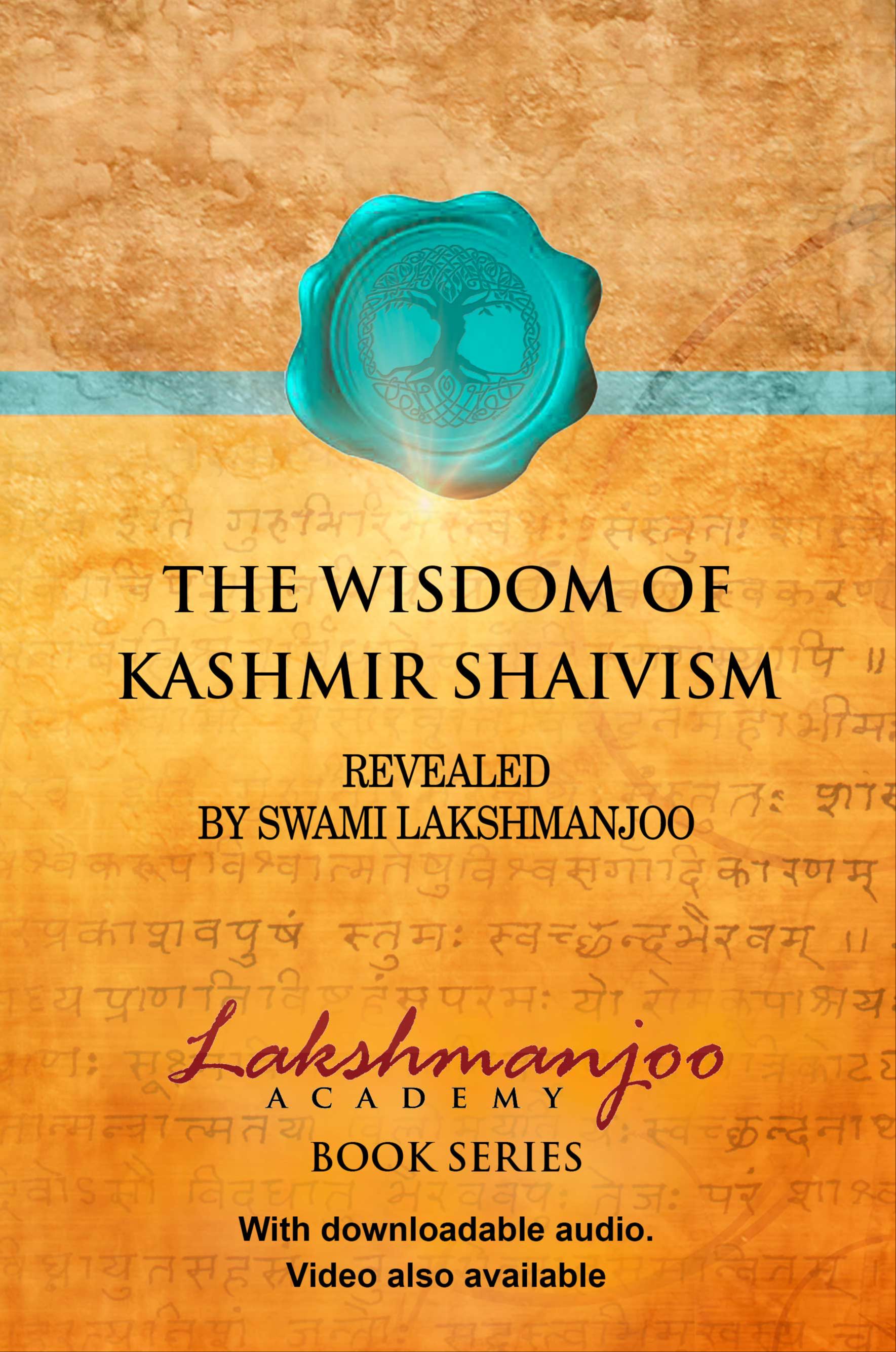
There are three types of spiritual joy (sukha) in Kashmir Shaivism: sāttvic sukha, rājas sukha, and tāmas sukha. In this excerpt from the Bhagavad Gita, In the Light of Kashmir Shaivism, by Swami Lakshmanjoo, chapter 18, verse 36-37, Swami Lakshmanjoo explains sukha of sāttvic [kind] and how this joy seems poisonous in the beginning.
Chapter 18 Part 2
SWAMIJI:
DVD 18b (00:01)
सुखं त्विदानीं त्रिविधं शृणु मे भरतर्षभ ।
अभ्यासाद्रमते यत्र दुःखान्तं च नियच्छति ॥३६॥
sukhaṁ tvidānīṁ trividhaṁ śṛṇu me bharatarṣabha /
abhyāsādramate yatra duḥkhāntaṁ ca niyacchati //36//
I will tell you now sukha, what is sukha. Sukha is also three fold: sāttvic sukha, rājas sukha, and tāmas sukha. I mean happiness, joy.
Now the 37th śloka is explaining sukha of sāttvic [kind].
DVD 18b (00:39)
यत्तदात्वे विषमिव परिणामेऽमृतोपमम् ।
तत्सुखं सात्त्विकं विद्यादात्मबुद्धिप्रसादजम् ॥३७॥
yattadātve viṣamiva pariṇāme’mṛtopamam /
tatsukhaṁ sāttvikaṁ vidyādātmabuddhiprasādajam //37
Yattadātve, that sukha (joy) which, in the beginning, seems to be viṣamiva, just like poison; in the beginning, it seems just poisonous.
For instance, when mother wakes him, wakes Viresh up with force, and asks Viresh (after [all], Viresh is also in my circle, he has come into my circle) that, “Swamiji is calling you. He wants that you should sit for meditation.” At first, he thinks viṣamiva, it is very dreadful . . .
DENISE: [laughs]
SWAMIJI: . . . it is very dreadful to wake up [early to meditate]. And when once he is awake, at that time, at the time of doing practice afterwards when he is [meditating] in front of me, pariṇāme amṛta upamam, at that time he feels the blissful state, at that time.
That sukha is sāttvic sukha, you should understand that is sāttvic sukha. In the first beginning, [abhyāsa] seems very dreadful, it seems poisonous.
JOHN: Sāttvic sukha?
SWAMIJI: Sāttvic sukha. At first, it seems poisonous, but when he has conducted this sāttvic sukha of abhyāsa and meditation, he feels just blissful.
DENISE: Why is that? Is that because he feels so much sweetness within himself that he doesn’t want to go out and get some other sweetness?
SWAMIJI: No. It is just an examination for him, if he wakes up or not.
DENISE: Aha!
SWAMIJI: If you are fortunate, you’ll wake up; you will wake up and you will throw [the bedding off] just like it’s shikas (rubbish), and [you will] be situated in God consciousness, and you will remain blissful. That is sāttvic sukha.
JOHN: So, in the first instance, spirituality seems to be really . . .
SWAMIJI: Yes, really not good.
DENISE: Undesirable.
SWAMIJI: Undesirable. It is very painful.
DENISE: Painful.
SWAMIJI: Painful.
JOHN: Frightening also?
SWAMIJI: Yes. That is sāttvic sukha (joy).
DENISE: So Swamiji, you’re talking about spiritual joy? You’re not talking about pleasures in the world? You’re talking about spiritual joy?
SWAMIJI: Yes, spiritual joy.
Tadātve means abhyāsakāle [comm. verse 37], at that time, [abhyāsa] seems very fearful.512
kṣurasya dhārā viṣamā duratyayā ।
durgaṁpadhastat kavayo vadanti
[Abhinavagupta] has given [this] example in his commentary. Kṣurasya dhārā viṣamā duratyayā, this pathway of spiritual bliss, blissful pathway, is to tread on the sword’s edge; to walk [the spiritual path], this is viṣamā duratyayā, it is not easily conducted. Durgaṁ paddhas tat kavayo,it is very difficult to tread on, but once you are on it, then it is filled with spiritual joy.

_______________
512 “For instance, I am meditating, I meditate for half an hour. After half an hours time, I want to lean, I want to lean and meditate. After half an hours time I will sit in easy chair and meditate. It means it is poisonous. It [feels] like poison to you. At the time it [feels like] poison, not leaning against a wall or not relaxing in easy chair is poisonous for you. You don’t want to sit [erect]. If you just have courage to sit for some [longer] period without leaning against wall, you’ll see what kind of joy you’ll achieve. That is sāttvic sukha.” Bhagavad Gītā (1978).
Listen to an earlier version of the same verse explained by Swamiji…
Source: Bhagavad Gita, In the Light of Kashmir Shaivism, by Swami Lakshmanjoo, chapter 18, verse 36-37.
All Content is subject to Copyright © John Hughes.






